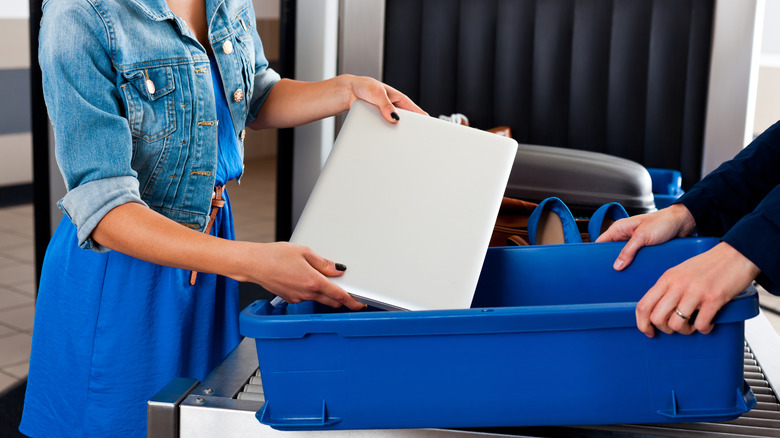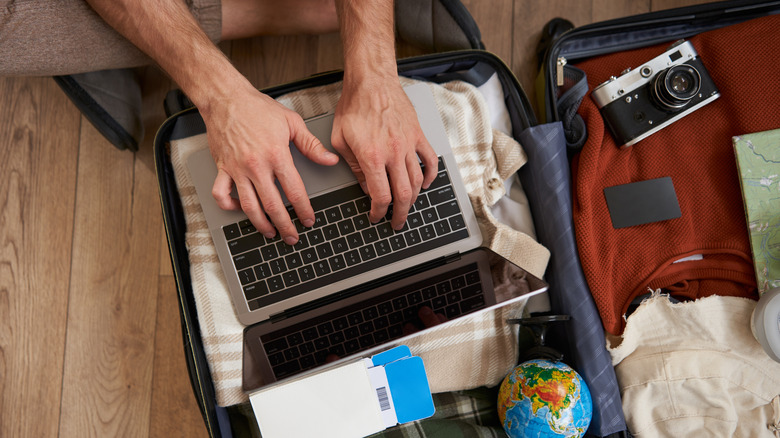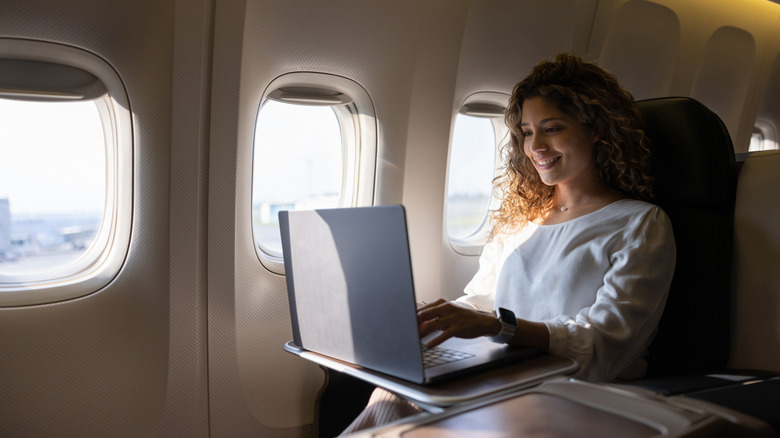Can You Put A Laptop In Your Checked Luggage?
We may receive a commission on purchases made from links.
Traveling with a laptop is quite common, especially if you're working remotely while traveling. The question is often raised, should your laptop go in your carry-on or in your checked luggage? It's time to settle this confusion once and for all and explain thoroughly the implications of having a laptop in checked luggage.
The short answer is yes, it is permitted by the Transportation Security Administration (TSA) to place laptops in checked luggage, but there are important safety concerns that should be considered. Certain airlines might have their own strict policies, taking extra precautions when it comes to having electronics in checked luggage.
The primary issue is the lithium battery found in modern laptops. Some airlines ban laptops with lithium batteries in checked luggage because they can be a safety risk, especially under extreme temperatures in cargo holds. Lithium-ion batteries pose a fire hazard, so the Federal Aviation Administration recommends that they be transported in carry-on bags. That way they can be monitored in the cabin by trained flight crew. Some airlines allow devices with lithium-ion batteries in checked bags if the battery cannot be removed, as long as it is powered off.
While TSA clearly prohibits lithium batteries with more than 100 watt hours (wh) in checked luggage, passengers may carry two spare lithium-ion or lithium metal batteries, if the airline regulations permit it. Keep in mind that most electronics, including phones, laptops, and tablets, use standard batteries that do not exceed the 100-wh mark. Read on to find out the risks of placing a laptop in checked luggage, and how to ensure your laptop arrives safely at your destination.
Risks of placing a laptop in checked luggage
Besides the fire risk imposed by lithium batteries, the most obvious reason why it isn't the best idea to leave your laptop in your checked luggage is the risk of damage. Checked luggage is subject to rough handling during transit, which could very well put your delicate laptop's components at risk — even with a protective case. Even on the flight, there are risks of sudden impacts, pressure changes, or mishandling by airport staff that could easily damage your device.
Lost baggage is also a risk worth considering, as it is not uncommon for airlines to delay, misplace, or lose your luggage entirely. While they do offer compensation, not all airlines cover the cost of valuable items or electronics. Think of the valuable data on your device and sensitive personal information that could be compromised if the laptop — or the entire bag — are subjected to loss or theft. That's why, if you're checking in your electronic devices, make sure to use password protection and encryption for extra data security.
Tips for traveling safely with your laptop
If you want to travel safely with your laptop, it is best to keep it in your carry-on. This will allow you to maintain control and take any necessary safety precautions throughout the entire journey. Not only that, but you'll also get to actually use it on your flight, for work or entertainment, making it an extra benefit to keep it with you, especially if you're on a long flight. Remember to check airline policies in advance, as each airline has their own unique rules when it comes to electronics and prohibited checked items. You can contact customer service in advance to confirm their policies, instead of being left with an issue at the airport.
If you absolutely must check your laptop, you can minimize the risk of damage by using a sturdy laptop bag. Don't forget to wrap the bag in clothing for extra padding. If the battery is removable, consider storing it in your carry-on for fewer risks. Just in case, it is better to back up all important files and personal documents before traveling. You can also buy a luggage tracker to monitor and track the location of your luggage, just in case it gets lost. If you have an extra or secondary laptop that is less expensive, it could be a smart option to use that one for travel, just in case it is subjected to any damages.


